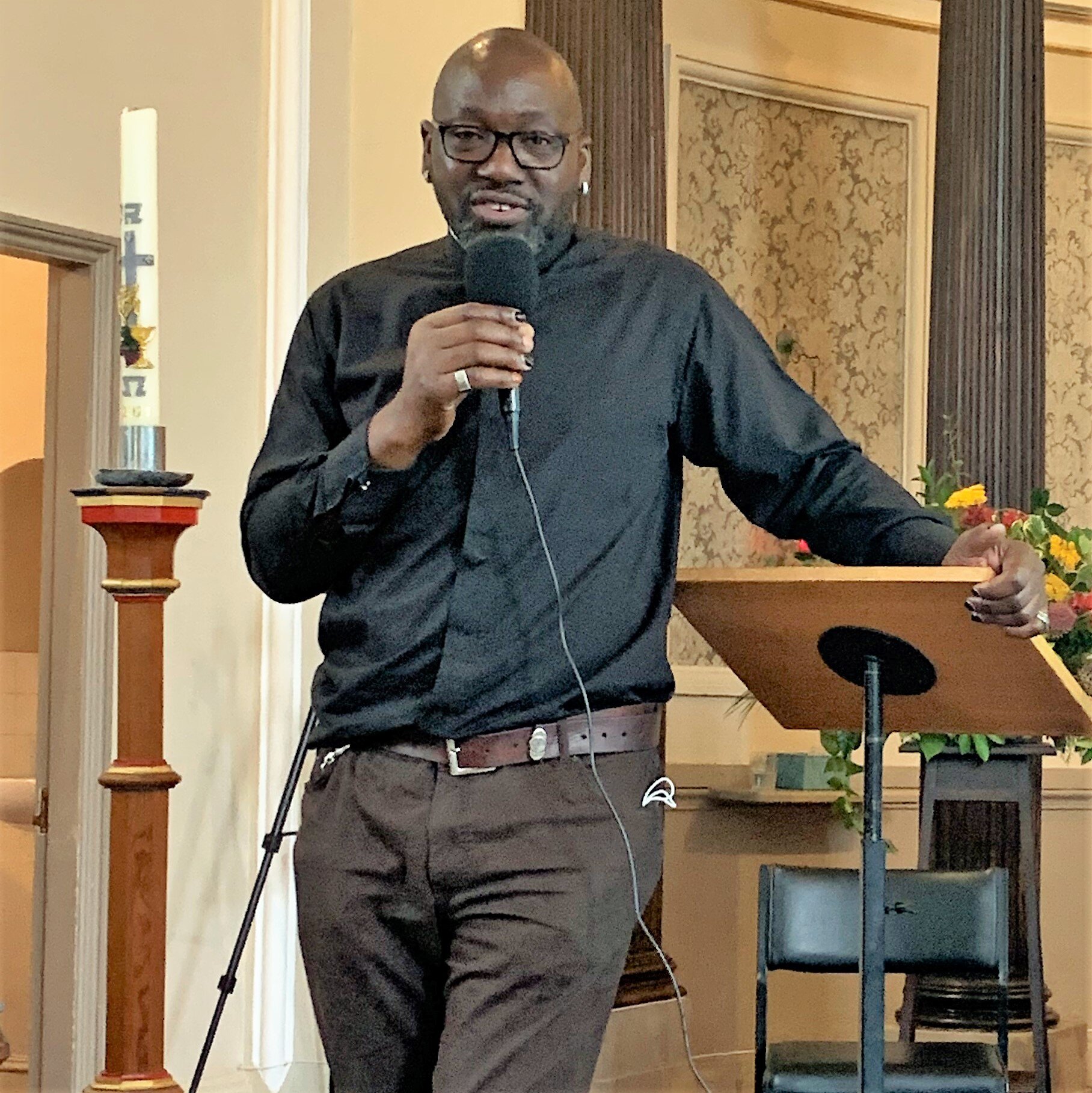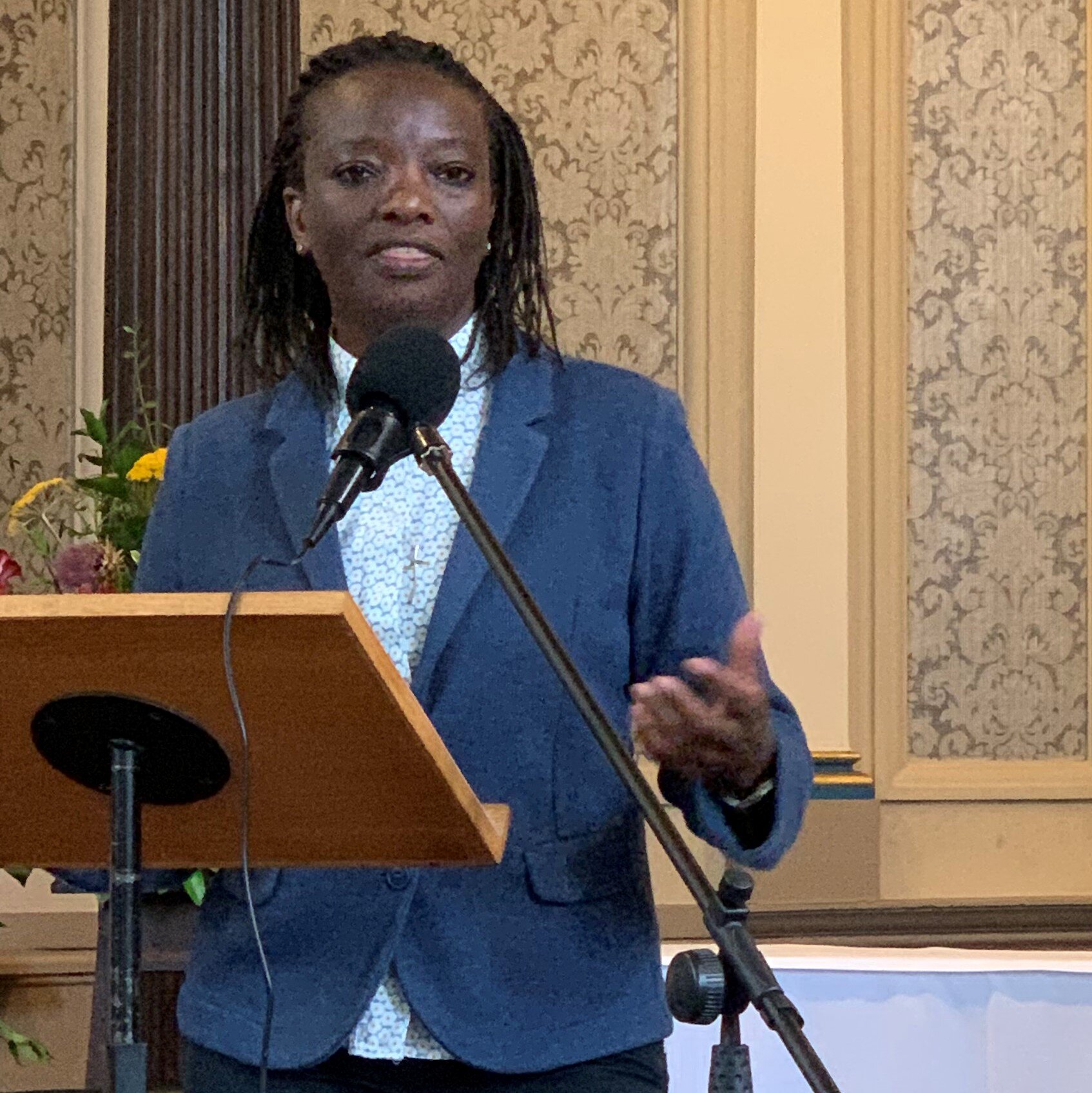Breaking bread together - An Open Table South London study day
LEFT TO RIGHT: Revd Miranda Threlfall-Holmes, Rector of the parish which hosts the first Open Table community in Liverpool, and Revd Jide Macaulay, founder of House of Rainbow and priest in London, at the Church of the Ascension, Blackheath to speak at the Open Table South London Study Day on Saturday 25th September 2021.



ON Saturday 25th September 2021, the Church of the Ascension, Blackheath, which has hosted Open Table South London since January 2018, held a study day to introduce people to Open Table, and to the Church of the Ascension as a liberal and progressive space for theological discussion and inclusive worship. Fiona Thomas shares her reflection on the day.
Seventeen of us who gathered for the study day were drawn to the event for diverse reasons - to learn more about ways of reading the Bible, explore establishing new Open Table communities, experience what Open Table can offer, and discover what it means to be a progressive church.
Branding the event as a ‘study day’ may have helped to attract a high proportion of clergy to the event, and it was noticeable that people came from significant distances by public transport or car.
We opened the day with worship, then moved into a time to get to know one another better through stories of welcome, inclusion and affirmation. It was fascinating to hear the buzz of conversations in the early session as people told one another their stories, and it was really useful to be able to show a video about Open Table shared by Kieran the Open Table Network Coordinator, who was unable to attend in person.
Revd Jide Macaulay, founder of the House of Rainbow and a Church of England priest, gave an inspiring and moving account of some of the pressures faced by Black and Minority Ethnic LGTBQIA+ Christians in London, and various countries in Africa. Jide’s testimony was a vital reminder that homophobia sanctioned by the church continues to kill people, and that there are ways of retrieving the Bible from the imprisonment of texts that terrorise or ‘clobber’ LGTBQIA+ people, their families, friends and allies. His many ways of using the acronym GAY (God Adores You, God Affirms You, God Accepts You) was a lesson in subverting language.
After a simple lunch with more time for Covid-careful conversations, the curate at the Church of the Ascension, Revd Lindiwe Maseko, shared her experience of being raised in Zimbabwe in the theology of ubuntu, championed by South African Archbishop Desmond Tutu. Summarising the term, which cannot be directly translated, as ‘I cannot be fully me if you are oppressed and degraded’ gave powerful insights for LGBTQIA+ people and their families, friends and allies. The rich resource of ubuntu theology is a gift with more to unpack in it. The savage irony is that the homophobic laws which Jide identified were imposed by colonial powers, while deeper, wiser understandings of human interdependence like ubuntu were set aside.
Thanks to sponsorship from the Montgomery Trust, we were able to invite Revd Miranda Threlfall-Holmes, Rector of the team parish in Liverpool where the first Open Table community started, to spend an absorbing hour unpacking her book How to Eat Bread: 21 Nourishing Ways to Read the Bible. She argued that the way we read and discard the Bible as people of the Modern era rests on a false understanding of how the Bible was read and understood in Medieval times and in the early Church.
I was touched by Miranda’s awareness when she offered feminist interpretations, while drawing back from suggesting that she could be engaged in Queer theology. It prompted me to wonder if there is a more intentional way in which Open Table communities such as the group in South London could engage in Queer theology. Some members of the Open Table Network are clearly fully engaged in academic theology - there’s scope for all of us to speak of God, and through that to allow a Queer theology to emerge from below.
To close the day, Revd Anne Bennett, Vicar of the Church of the Ascension, co-ordinator of Open Table South London and a trustee of the Open Table Network, led us in a simple Open Table communion service.
It struck me again how important it is for any Open Table community to have a sympathetic host church. The history of the Church of the Ascension as a progressive Christian community goes back more than a hundred years. Its commitment to human rights is epitomised by its Vicar from 1968 to 1981, Canon Paul Oestreicher, who was a founding member of the Movement for the Ordination of Women. Being faithful to a hospitable, radical, contextual theology is a tradition with deep roots which makes it possible for the worshipping congregation to open its doors to LGBTQIA+ Christians, among others.
In the past few months two other churches in South London have expressed interest in starting Open Table communities - planning the study day has provided us with a focus for thinking about what that might mean. Could Open Table South London become a network of communities, or maybe one community meeting in different places on each Sunday evening? There’s more to explore on this through conversations.
From my standpoint the Study Day was a success. How could it have been even better? We covered a lot of ground and wanted to offer something that would be attractive to a wide audience. It would be good to have given time at the end to ask for feedback in a structured way, or to find ways to keep in touch with people. Maybe it is enough to have offered the day and to have made links with people.


